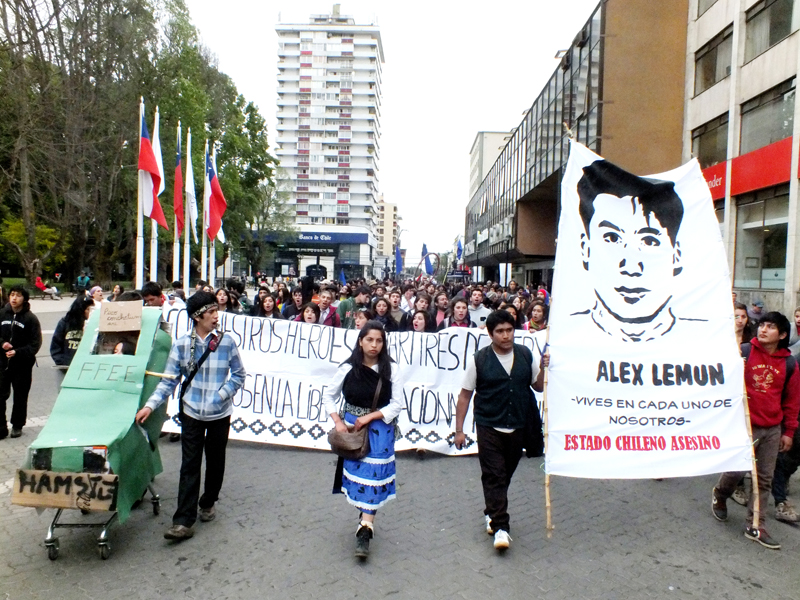






Temuco and Buenos Aires, January 28, 2013.- The Inter-American Commission on Human Rights (IACHR) admitted the case of Alex Lemún against Chile. The case presents the extrajudicial execution of Alex Lemún by the Carabineros and the impunity in which the case remained as a consequence of its filing in the military jurisdiction. The notification of admission was received on Friday, January 25, by the Center for Justice and International Law (CEJIL), representative of Lemún’s family before the IACHR.
The case was brought before the IACHR on April 25, 2006 and it denounces the execution of the Mapuche member Alex Lemún as a result of the excessive use of force during a protest to claim for the rights of the Mapuche people in the IX Region, as well as the incompatibility of the current military jurisdiction in Chile with the standards of international human rights law. The IACHR admitted the case, considering an alleged violation of the rights to life, personal integrity, special protection for children, equality before the law, judicial guarantees and judicial protection.
As of January 25, when the notification of admission was received, the family of the victim has a period of three months to present their arguments, which will also be presented to the State so that, within a similar period, it can present its defense against alleged violations of human rights.
“This case raises the debt of the Chilean State with the adequation of military justice to the obligations established in international human rights law,” said Viviana Krsticevic, Executive Director of CEJIL. Krsticevic recalled that in its Resolution on Supervision in compliance with the judgment issued on July 1, 2011 in the Palamara case, the Inter-American Court of Human Rights insisted in the obligation of the State of Chile to “adapt the domestic law to international standards on military jurisdiction, so that in case that a military criminal jurisdiction is considered necessary, it would be limited only to military offences”.
Help us continue this critical and urgent work with a donation!
DONATE NOW